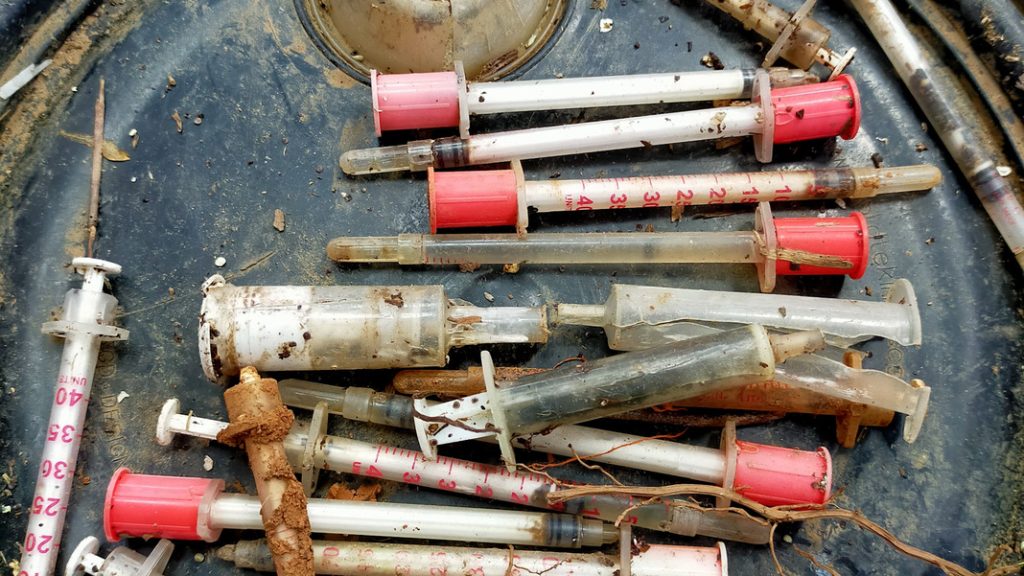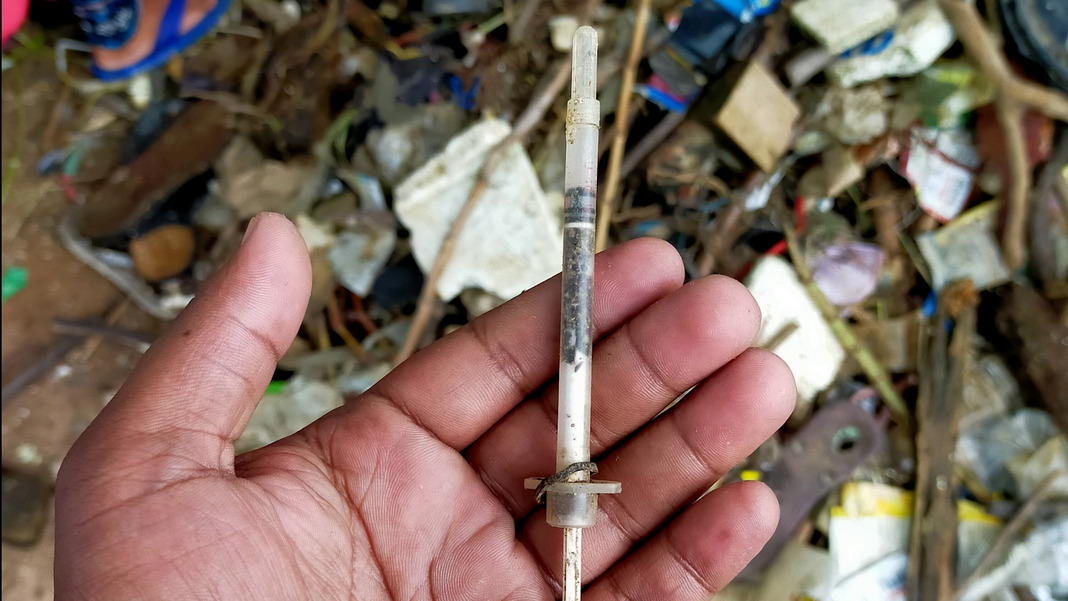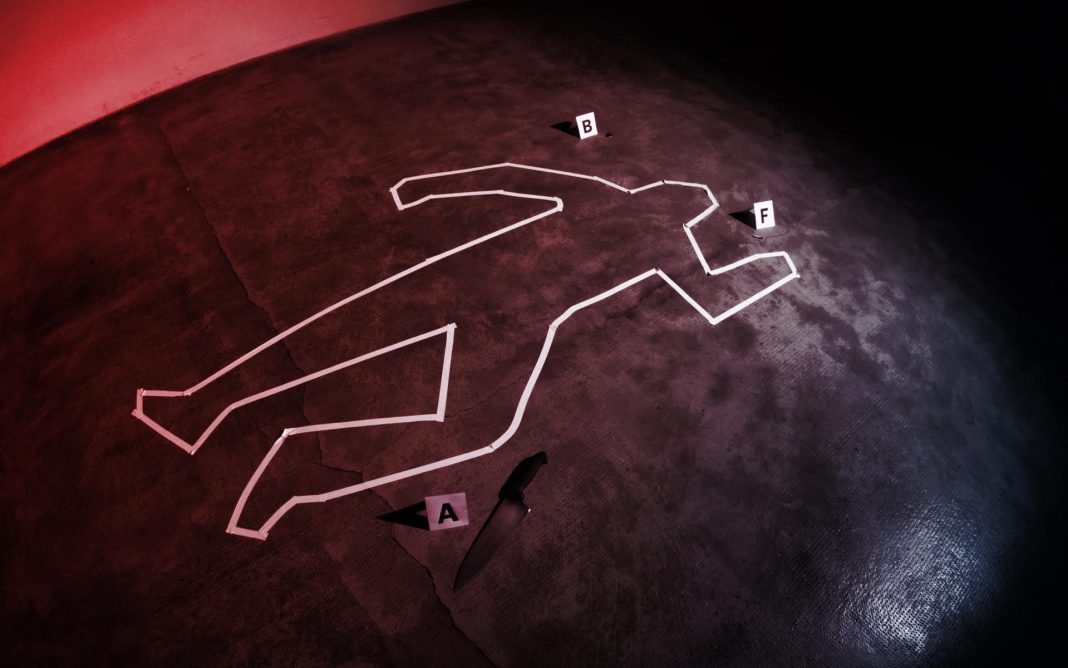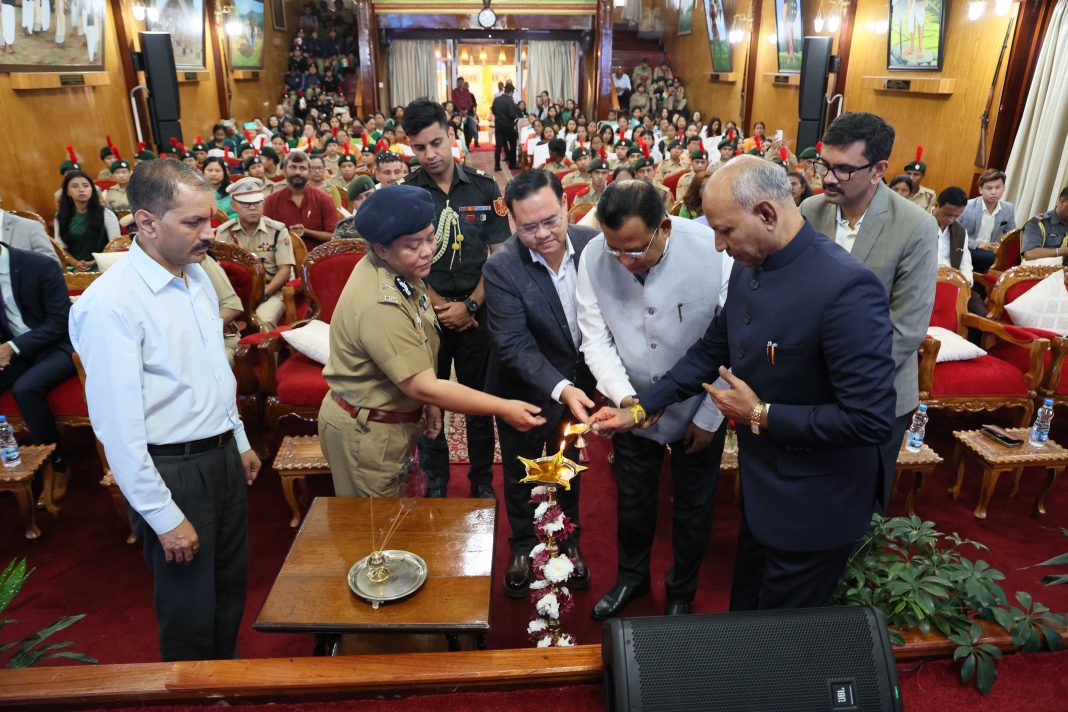Guwahati, Aug 14: Umiam Lake, often referred to as Barapani, is one of Meghalaya’s most iconic and picturesque destinations, drawing visitors for its serene waters and surrounding lush greenery.
But the sighting of numerous syringes found recently during the segregation process by ECO-RI, a startup based in Meghalaya, which is working to tackle the growing menace of plastic waste is a serious one and needs immediate action. ECO-Ri is a socially responsible startup based in Meghalaya working to process/recycle plastic waste.
ECO-RI, was established in February 2021 with a clear mission: to tackle the growing menace of plastic waste that plagues not only the beautiful state of Meghalaya but also the entire world.
The founders of ECO-RI, Bankitlang Nongbri and Seilydor Sohkhia were inspired by their shared love for nature and their concern over the increasing amount of plastic pollution in the environment. During their treks and outdoor adventures, they often discussed the beauty of nature and lamented the sight of litter, particularly plastic waste, in some of the most scenic places. This deep concern led them to explore ways to address the issue of plastic waste management.
“During our recent operations, the Clearbot Team using the AI-powered boat collected a significant amount of waste, including a troubling discovery—numerous syringes. These syringes were found during the segregation process at our waste collection unit, highlighting a critical issue. Such hazardous waste poses severe risks to those who handle and clean the lake manually, often without the proper safety equipment” officials of ECO-RI said. Clearbot had provided the AI- powered boat.
The advantage of using an AI-powered boat is that it can significantly reduce human exposure to potential pathogens by automating the collection process. This minimizes the risk of disease transmission often associated with manual handling of contaminated materials, safeguarding human health and reducing the strain on healthcare resources. It can also access the places which would be difficult for a normal boat to go in; it learns about the area and adjusts accordingly to the water flow, waste amount.
“This situation underscores a broader problem in waste management practices that requires immediate attention.Rather than placing blame, it’s crucial that we come together to address this challenge” the officials said.
Their journey began when Bankitlang came across a Facebook post about Precious Plastic, a movement based in the Netherlands dedicated to recycling plastic waste into useful products. Inspired by the initiative, Bankitlang shared the idea with Seilydor, and together, they decided to pursue a similar path in Meghalaya. After extensive research, they presented their ideas to government offices, but the initial response was discouraging due to the financial constraints associated with the available schemes.

However, their determination paid off when they decided to participate in the CM’s E-Championship Challenge. Despite the challenges posed by the COVID-19 pandemic, including lockdowns and personal hardships, they pushed through and emerged as one of the top 50 entrepreneurs in the state. This achievement gave them the motivation to continue their journey, despite the lack of business experience and the pressure from their families to focus on more stable career paths.
With the prize money from PRIME Meghalaya, they purchased basic equipment, including an OTG oven and a custom-made hydraulic press, and began experimenting with plastic waste. After several trials and errors, they successfully created their first prototypes—a stool and a flower pot. Although their setup was small and the process time-consuming, they received positive feedback from the community and began taking orders for their products.
As the demand for their products grew, the limitations of their small setup became apparent. Working with just an OTG oven and manually cutting plastic was both time-consuming and physically taxing. Despite these challenges, Bankitlang continued to produce the items late into the night after his day job. However, the growing demand and lack of proper equipment eventually forced them to pause operations temporarily.
Their breakthrough came when they secured a ₹5 lakh grant from PRIME’s Kickstart Grant, which allowed them to purchase proper machinery and restart their operations. This grant marked a significant milestone in their journey, bringing them closer to realizing their dream of making a meaningful impact in the fight against plastic waste.
FUTURE PLAN: The future plan is to further strengthen the processing part as all the northeastern states are struggling with processing and recycling as the focus is very low due to lack of technology and others. “Our vision is to become a leading plastic waste processing company in the North East. Recognizing the region’s critical need for advanced waste management solutions, we aim to bridge the technology gap and establish a robust processing infrastructure. By successfully addressing the plastic waste crisis in the North East, we aspire to expand our operations nationwide within the next decade, contributing significantly to India’s overall sustainability goals” the founders of ECO-RI say.




